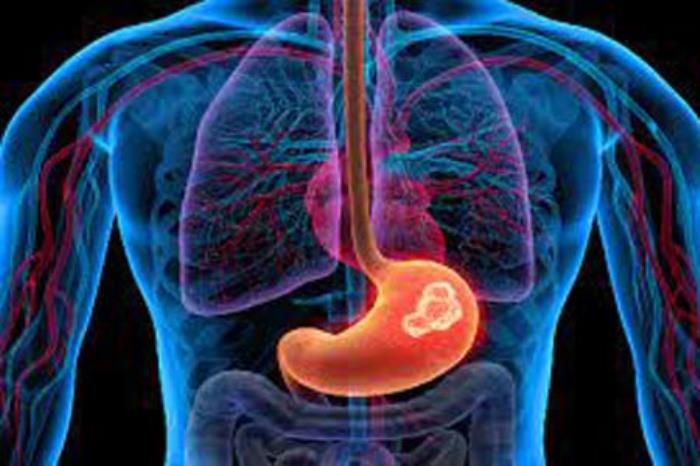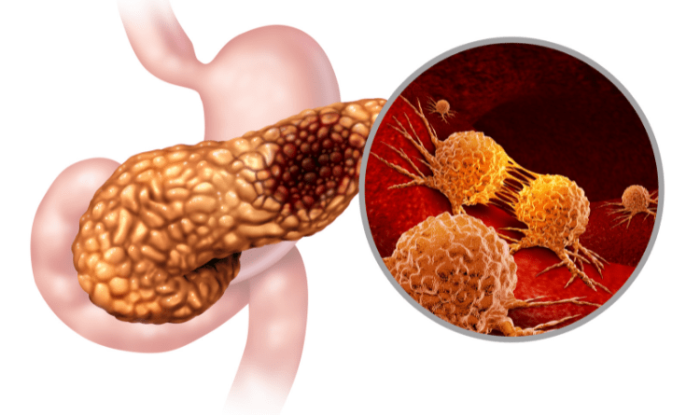Stomach cancer, also known as gastric cancer, is a significant health concern in India, accounting for a considerable number of cancer-related deaths annually. The incidence of this malignancy is notably higher in certain regions, influenced by dietary habits, genetic predispositions, and environmental factors. Early detection remains a challenge, as symptoms often mimic other gastrointestinal disorders. Understanding the risk factors and symptoms is crucial for timely diagnosis and intervention.
Current Statistics on Stomach Cancer in India
According to recent studies, stomach cancer ranks among the top five cancers in India. The Indian Council of Medical Research (ICMR) reports that the disease has a higher prevalence in males compared to females. The average age of diagnosis is typically between 50 and 70 years. Awareness of these statistics is vital for healthcare professionals and policymakers to address the growing burden of this disease effectively.
Understanding Risk Factors for Stomach Cancer
Several risk factors contribute to the development of stomach cancer. These include a diet high in salted, smoked, or pickled foods, as well as low fruit and vegetable intake. Additionally, infections such as Helicobacter pylori play a significant role. Other contributors include smoking, obesity, and certain genetic conditions. Recognizing these factors is essential for developing preventive strategies.

Importance of Early Detection in Stomach Cancer
Early detection of stomach cancer significantly improves treatment outcomes. Routine screening for high-risk populations, particularly those with a family history, can lead to earlier diagnosis. Common diagnostic tools include endoscopy and imaging studies. Awareness and education on the early symptoms such as unexplained weight loss, persistent abdominal pain, and difficulty swallowing are crucial for prompt medical consultation.
Advancements in Diagnostic Techniques for Stomach Cancer
Recent advancements in diagnostic techniques, such as liquid biopsy and enhanced imaging modalities like PET-CT scans, have improved the accuracy of stomach cancer diagnosis. These innovations allow for the detection of cancer at earlier stages and provide valuable information regarding tumor biology, aiding in personalized treatment planning. The integration of artificial intelligence in radiology is also enhancing diagnostic capabilities.
Role of Genetic Testing in Stomach Cancer Treatment
Genetic testing plays a pivotal role in understanding individual susceptibility to stomach cancer. Tests can identify mutations in genes such as CDH1, which are associated with hereditary diffuse gastric cancer. This information is crucial for risk assessment and guiding preventive measures, including prophylactic surgeries for high-risk individuals. Genetic counseling is also recommended for affected families.
Traditional Treatment Modalities for Stomach Cancer
Traditional treatment modalities for stomach cancer include surgery, chemotherapy, and radiation therapy. Surgical options may involve partial or total gastrectomy, depending on the cancer's stage and location. Chemotherapy is often used as adjuvant therapy to eliminate residual cancer cells post-surgery. Radiation therapy may be employed to alleviate symptoms or as a palliative measure for advanced cases.
Emerging Targeted Therapies for Stomach Cancer
Emerging targeted therapies are revolutionizing the treatment landscape for stomach cancer. Agents targeting specific molecular pathways, such as the HER2 receptor, have shown promising results in clinical trials. These therapies are designed to selectively attack cancer cells while sparing normal tissues, leading to fewer side effects and improved patient outcomes. This approach represents a significant shift in treatment paradigms.
Immunotherapy as a Novel Treatment Option
Immunotherapy has emerged as a novel treatment option for stomach cancer, particularly for patients with advanced disease. Drugs that inhibit immune checkpoint proteins, such as PD-1 and CTLA-4, can enhance the body’s immune response against cancer cells. Clinical trials are ongoing to evaluate the efficacy of these agents, and early results indicate a potential for improved survival rates in select patient populations.

Role of Palliative Care in Advanced Stomach Cancer
Palliative care is integral to the management of advanced stomach cancer, focusing on improving the quality of life for patients. This approach addresses physical, emotional, and spiritual needs, providing support for pain management, nutritional guidance, and psychological counseling. Early integration of palliative care has been shown to enhance patient satisfaction and may even prolong survival.
Multidisciplinary Approach to Stomach Cancer Management
A multidisciplinary approach is essential for effective stomach cancer management. This involves collaboration among surgeons, medical oncologists, radiation oncologists, dietitians, and palliative care specialists. Such teamwork ensures comprehensive care, addressing all aspects of the patient’s journey from diagnosis to treatment and beyond, ultimately leading to improved outcomes and patient satisfaction.
Clinical Trials and Research in Stomach Cancer
Clinical trials play a crucial role in advancing the treatment of stomach cancer. Ongoing research in India focuses on novel therapies, combination treatments, and biomarker identification. Participation in clinical trials offers patients access to cutting-edge treatments and contributes to the broader understanding of stomach cancer biology and treatment efficacy. Healthcare professionals are encouraged to discuss trial options with eligible patients.
Patient Education and Support Resources
Patient education is vital in managing stomach cancer. Providing information about the disease, treatment options, and coping strategies empowers patients and their families. Support resources, including counseling services and support groups, are essential for addressing the emotional challenges faced by patients. Organizations and hospitals in India are increasingly offering educational programs to enhance patient understanding and engagement.
Nutrition and Lifestyle Modifications for Stomach Cancer Patients
Nutrition plays a significant role in the management of stomach cancer. Patients are encouraged to adopt a balanced diet rich in fruits, vegetables, and whole grains while avoiding processed and high-salt foods. Lifestyle modifications, such as quitting smoking and maintaining a healthy weight, are also crucial. These changes can help improve treatment outcomes and overall well-being.
Psychosocial Support for Stomach Cancer Patients
Psychosocial support is essential for stomach cancer patients, as the diagnosis can lead to significant emotional distress. Counseling services, support groups, and mental health resources can help patients cope with anxiety, depression, and fear of recurrence. Healthcare providers should facilitate access to these services, ensuring that patients receive comprehensive care that addresses both physical and emotional needs.
Future Directions in Stomach Cancer Research
Future research in stomach cancer is expected to focus on personalized medicine, integrating genomic data to tailor treatment plans. Investigations into the microbiome's role in cancer progression are also gaining traction. Additionally, studies exploring the long-term effects of immunotherapy and targeted therapies will be crucial in refining treatment protocols and improving patient outcomes.
Challenges in Stomach Cancer Treatment in India
Despite advancements, challenges remain in the treatment of stomach cancer in India. Limited access to healthcare facilities, disparities in treatment availability, and a lack of awareness about early symptoms contribute to late-stage diagnosis. Addressing these challenges requires a concerted effort from healthcare providers, policymakers, and community organizations to enhance screening, education, and treatment accessibility.
Exploring Targeted Therapies for Stomach Cancer Patients
The targeted therapies for stomach cancer focus on attacking cancer cells with precision, reducing side effects and improving survival rates for patients undergoing treatment.
Innovations in Robotic Surgery for Stomach Cancer in India
The robotic surgery innovations offer minimally invasive options for stomach cancer treatment, ensuring faster recovery and greater accuracy during complex procedures.
Government Initiatives for Stomach Cancer Awareness
The Indian government has launched various initiatives aimed at increasing awareness of stomach cancer and improving screening programs. Campaigns focusing on diet, lifestyle changes, and the importance of early detection are crucial in reducing incidence rates. Collaborations with non-governmental organizations (NGOs) and healthcare institutions are essential to disseminate information effectively and reach at-risk populations.
Best Stomach Cancer Treatment in India
The Best Stomach Cancer Treatment in India combines advanced therapies like surgery, chemotherapy, and targeted treatments to ensure optimal outcomes for patients battling stomach cancer.
Stomach Cancer Treatment Cost in India
The stomach cancer treatment cost in india is affordable and transparent, making world-class cancer care accessible to both domestic and international patients.
Best Stomach Cancer Specialists in India
The Best Stomach Cancer Specialists in India bring extensive expertise in oncology, providing tailored treatment plans and compassionate support throughout the patient’s journey.
FAQs About Stomach Cancer Treatment in India
What are the common symptoms of stomach cancer?
Common symptoms of stomach cancer include persistent abdominal pain, unexplained weight loss, nausea, and difficulty swallowing. Early symptoms can be vague, making awareness crucial for timely diagnosis.
How is stomach cancer diagnosed?
Stomach cancer is diagnosed through a combination of methods, including endoscopy, imaging studies such as CT scans, and biopsies to confirm the presence of cancer cells.
What are the treatment options available?
Treatment options for stomach cancer include surgery, chemotherapy, radiation therapy, and newer approaches such as immunotherapy and targeted therapies. The choice of treatment depends on the cancer stage and patient health.
Are there any new treatments for stomach cancer?
Yes, new treatments such as targeted therapies and immunotherapy are being researched and implemented, providing additional options for patients, particularly those with advanced stages of the disease.
How can patients manage side effects of treatment?
Patients can manage side effects through supportive care, including nutritional counseling, pain management, and psychological support. Open communication with healthcare providers is essential for addressing side effects effectively.
Discover the Best Oncologists and Cancer Hospitals in India
When it comes to cancer treatment, finding the right specialist and hospital can make a significant difference in the outcome. In this blog, we have compiled a list of the top oncologists and cancer hospitals across major cities in India, ensuring that you have access to the best care available.
Top Oncologists in Major Cities
For those seeking expert oncologists, we have identified the best specialists in key cities:
Leading Cancer Hospitals
In addition to finding the right specialist, choosing the right hospital is crucial for comprehensive cancer care. Here are the top hospitals in major cities:
Get more indepth information on Cancer treatments and their costs
Conclusion
Finding the right oncologist and hospital is the first step in your cancer treatment journey. Explore the links above to learn more about the top specialists and hospitals in your area.